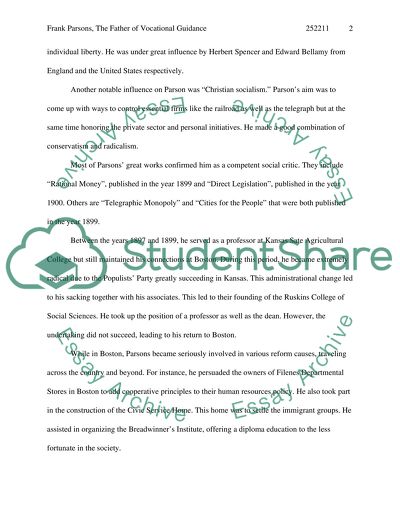Cite this document
(“Frank Parsons, the Father of Vocational Guidance Essay”, n.d.)
Frank Parsons, the Father of Vocational Guidance Essay. Retrieved from https://studentshare.org/miscellaneous/1512970-frank-parsons-the-father-of-vocational-guidance
Frank Parsons, the Father of Vocational Guidance Essay. Retrieved from https://studentshare.org/miscellaneous/1512970-frank-parsons-the-father-of-vocational-guidance
(Frank Parsons, the Father of Vocational Guidance Essay)
Frank Parsons, the Father of Vocational Guidance Essay. https://studentshare.org/miscellaneous/1512970-frank-parsons-the-father-of-vocational-guidance.
Frank Parsons, the Father of Vocational Guidance Essay. https://studentshare.org/miscellaneous/1512970-frank-parsons-the-father-of-vocational-guidance.
“Frank Parsons, the Father of Vocational Guidance Essay”, n.d. https://studentshare.org/miscellaneous/1512970-frank-parsons-the-father-of-vocational-guidance.


